Submitted by Sadia Siddiqui
Darul Qiyaam - Flood Resilient Habitat Workshop by Architecture Programme, University of Karachi
Pakistan Architecture News - Oct 24, 2022 - 00:49 2827 views
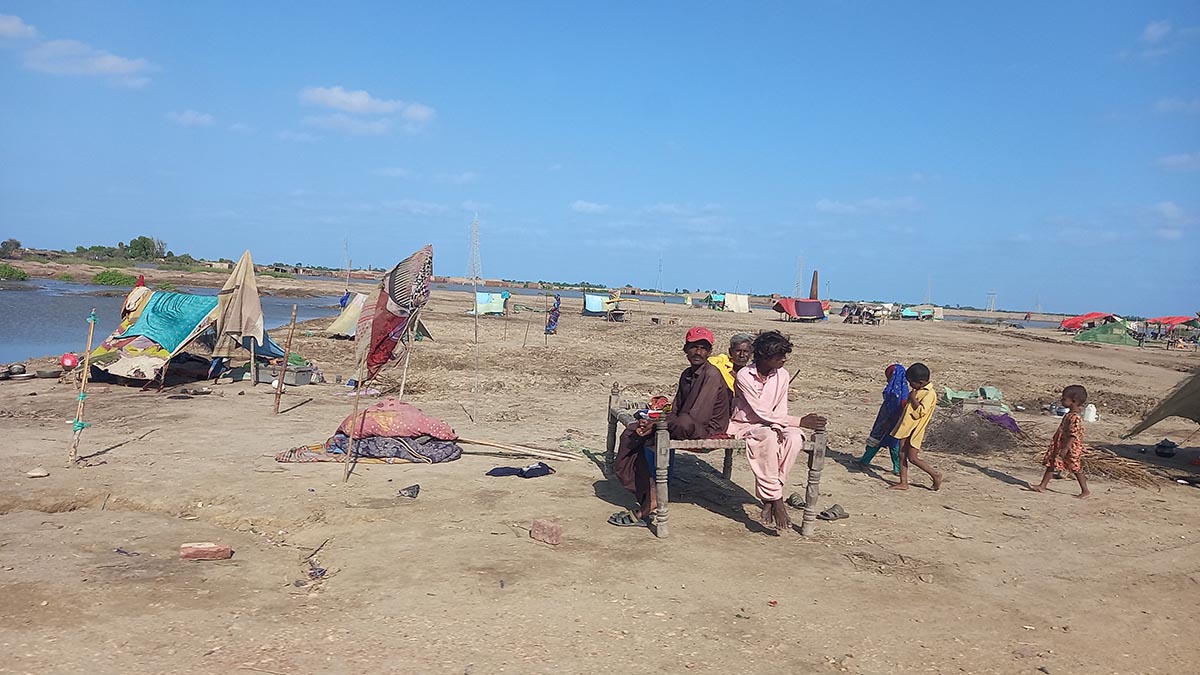
It has been more than 5 months to the flooding in Pakistan yet most of the affected parts are still under the water, forcing many to stay out in the open under the sky. With weather changing to extreme cold, so many lives are at stake with no shelter to provide them with the adequate shelter that they need. It is a pity that despite contributing less than 1% to the GHG, Pakistan is paying the price of the unprecedented development of the developing world. The reality of climate crisis hits the country with full force in 2022 when the torrential rains created havoc within the country, taking lives of more than 1500 people and robbing more than 6.4 million people of their livelihood and homes1.
Sindh being hit the hardest, with 88% of the damage due to the flooding caused within the province. Time required immediate measures to be taken to rehabilitate the victims of the flooding. While the people from different towns and cities, native and international organizations and governmental parties tried to curb the situation by providing the victims with immediate shelter and daily ration, little efforts are being done to rehabilitate the displaced. To provide them with safer and healthier shelter options, Architecture Programme of Department of Visual Studies, University of Karachi, decided to do their share of duty by conducting a week long workshop to find design solutions for the victims. The workshop was collaborated with WM Creative Studio Re-Lab, the founders of which are also the faculty members of the department.

As often believed, design is not a linear process but an iterative one whereby one is on a constant process of learning. Through constructive pedagogy and research, students learn to modify and improvise their ideas while expanding their thought process. The collaborative process of encourages thorough research, through which they explore building techniques and materials. Their collective efforts further get polished via constructive criticism. The idea to engage students along with faculty members who are working into the field as well is to support and learn from the expertise of each other. From creative and bold expression of students and practical approach of faculty members, the workshop has shown that it has a potential to seek viable answers to ongoing problems if collective efforts are made.
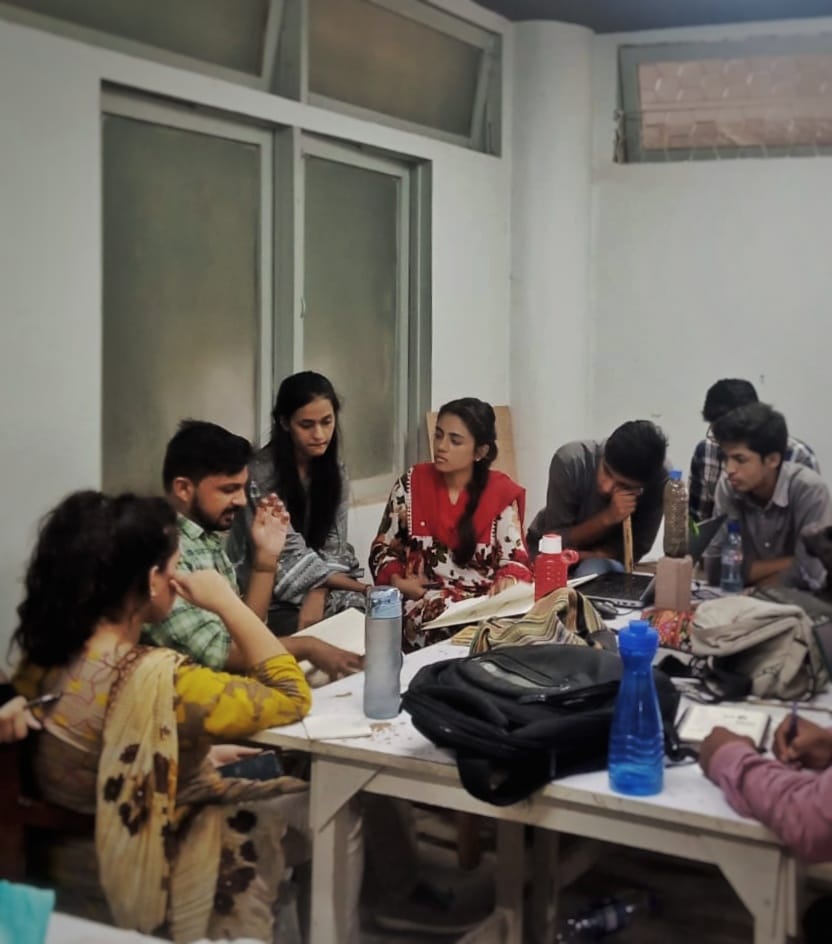
Students getting critique on their idea from a faculty member. Image © Muhammad Osama Baig
Designed by WM Creative Studio Re-Lab, the workshop for rehabilitation of Flood Victims, "Darul Qiyam: Flood Resilient Homes" was initiated on 5th of September, 2022. The activities were divided for the whole week, whereby students have to propose viable solutions for shelter for flood affected people to rehome them as soon as possible. The core concern was not the temporary abode but a permanent shelter which has to be sustainable, contributes to the well-being of the people without causing harm to the environment and is cost effective.
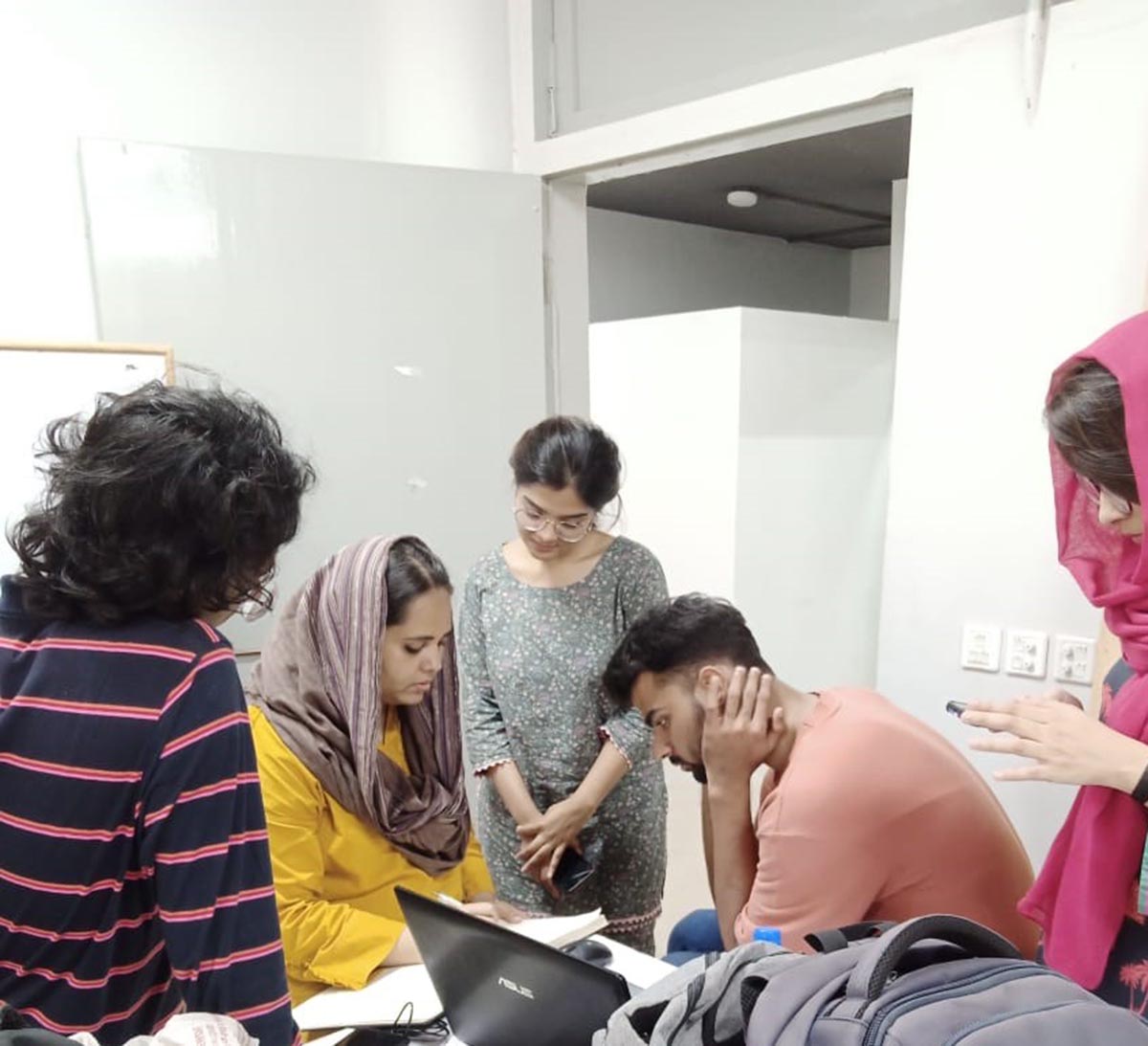
Faculty member reviewing the proposed design solution by one of the group members. Image © Muhammad Osama Baig
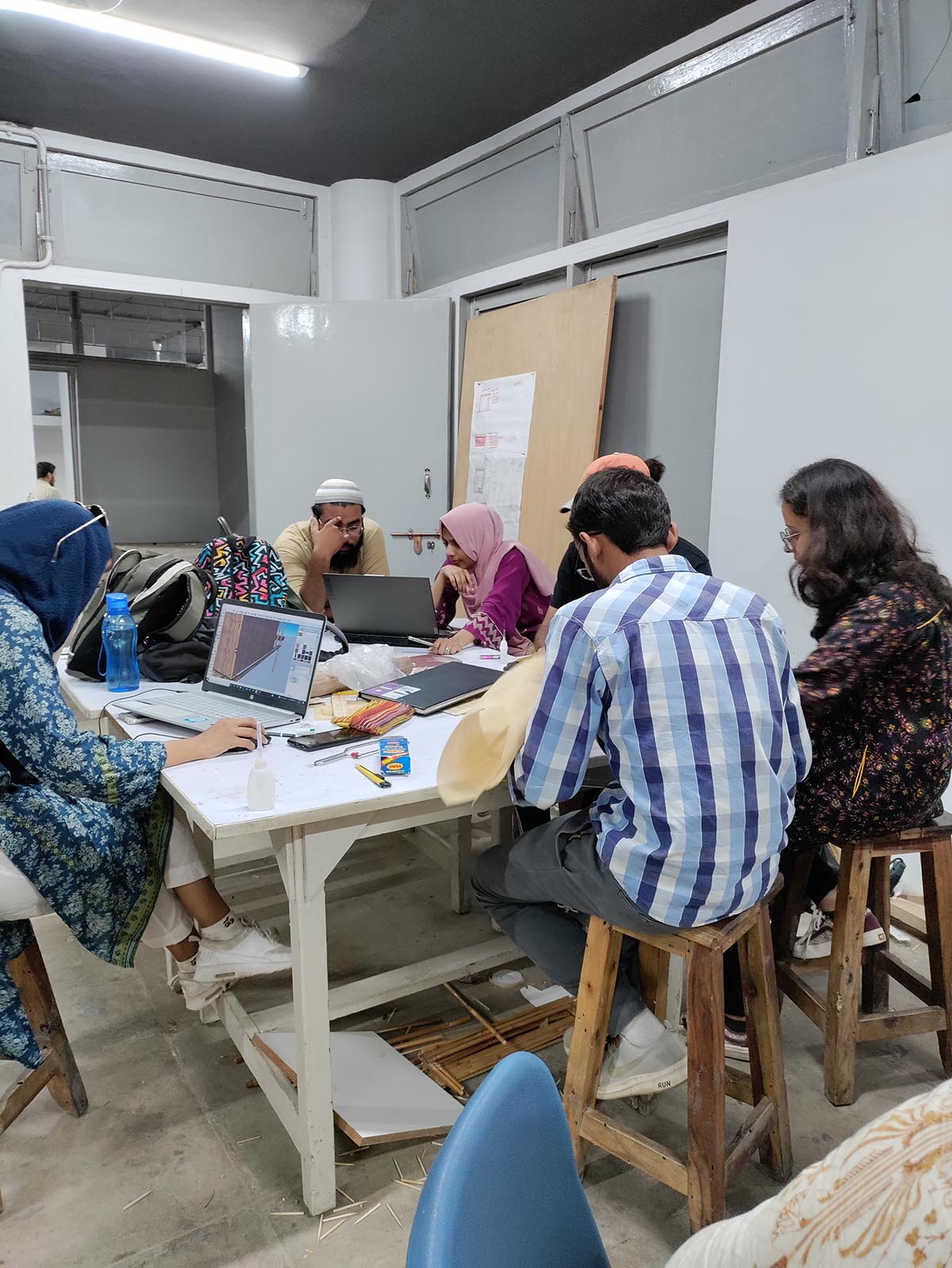
Students brainstorming their ideas in group. Image © Architecture Programme, University of Karachi
The day one started with the briefing of the workshop whereby students were introduced with the cause, the aim and the objective for the conduction of the workshop. Instead of keeping the workshop for a particular year of students, students from each year of Architecture Programme participated in the workshop. Groups were formulated, which had members from each year of the Architecture Programme. Even for mentorship, every faculty member attended the workshop, critiquing and advising students throughout the design process, during their session timings.
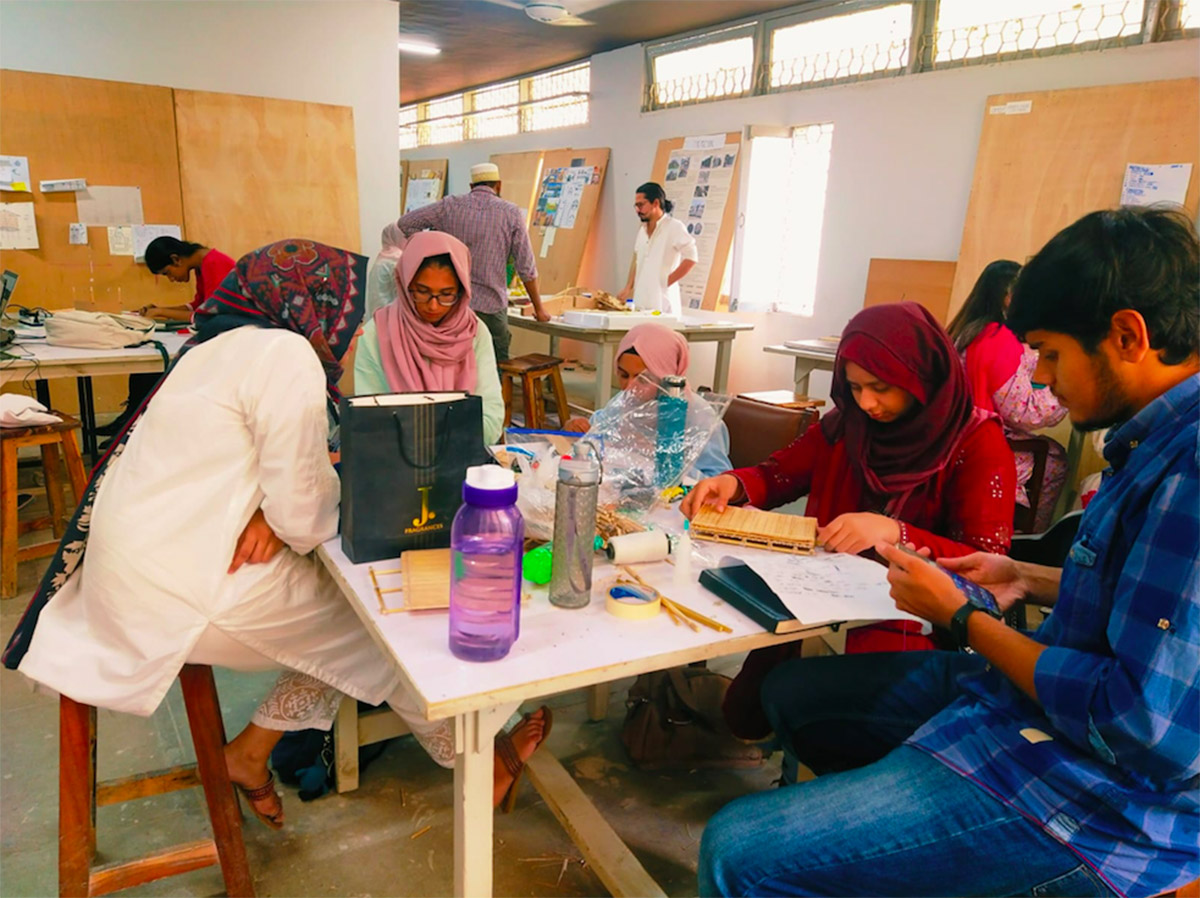
Students brainstorming their ideas in group. Image © Architecture Programme, University of Karachi
Day 2 and 3 were utilized by the students in building up their concept and planning their strategies to propose solutions that are practical and can be beneficial to the communities at large. From material exploration to rigorous research, students, along with their respective faculty members fully explored the practical ideas for providing the sustainable yet dignified shelters to those affected by the devastating deluge.
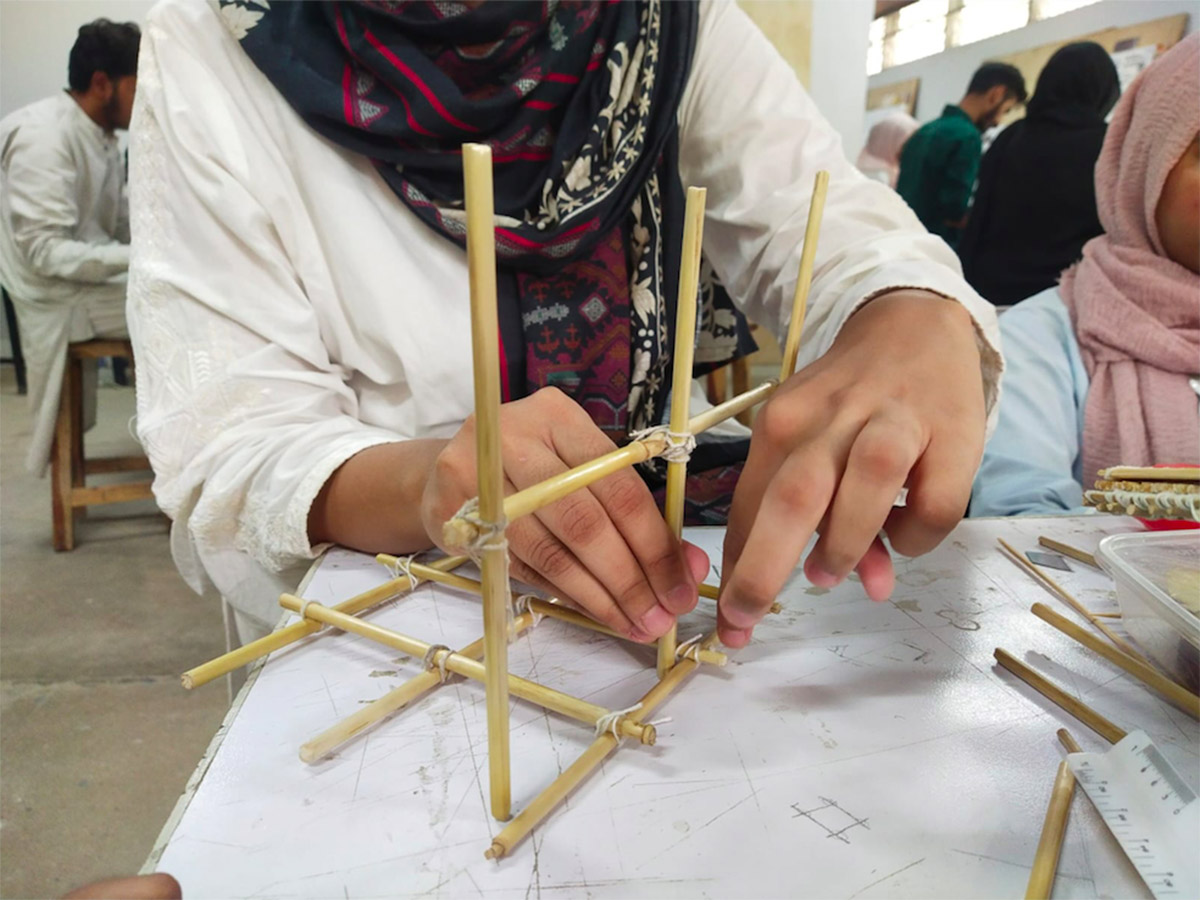
Image © Muhammad Osama Baig
The conceptual phase was the most challenging as this time the solutions proposed had to be practical, sustainable, affordable and in alignment with the social context as well. The main purpose was to ensure that the sensitivity of the situation was not being neglected. Instead of providing them with homes made of concrete, which would have robbed the cultural essence, students proposed building materials such as bamboo, mud, reed, thatch and reed mats. These materials were very much relevant to the environmental context and those affected are familiar with them.
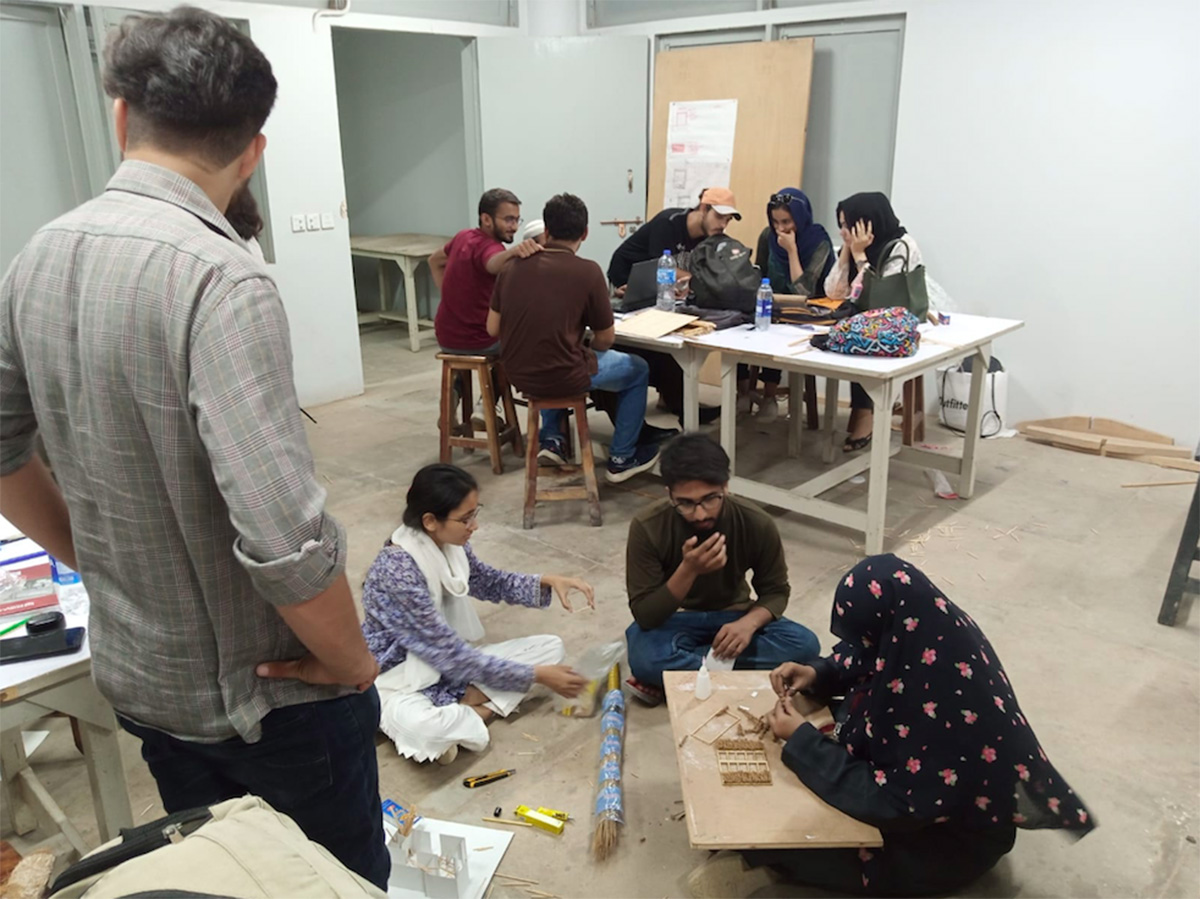
Exploring design via model making. Image © Muhammad Osama Baig
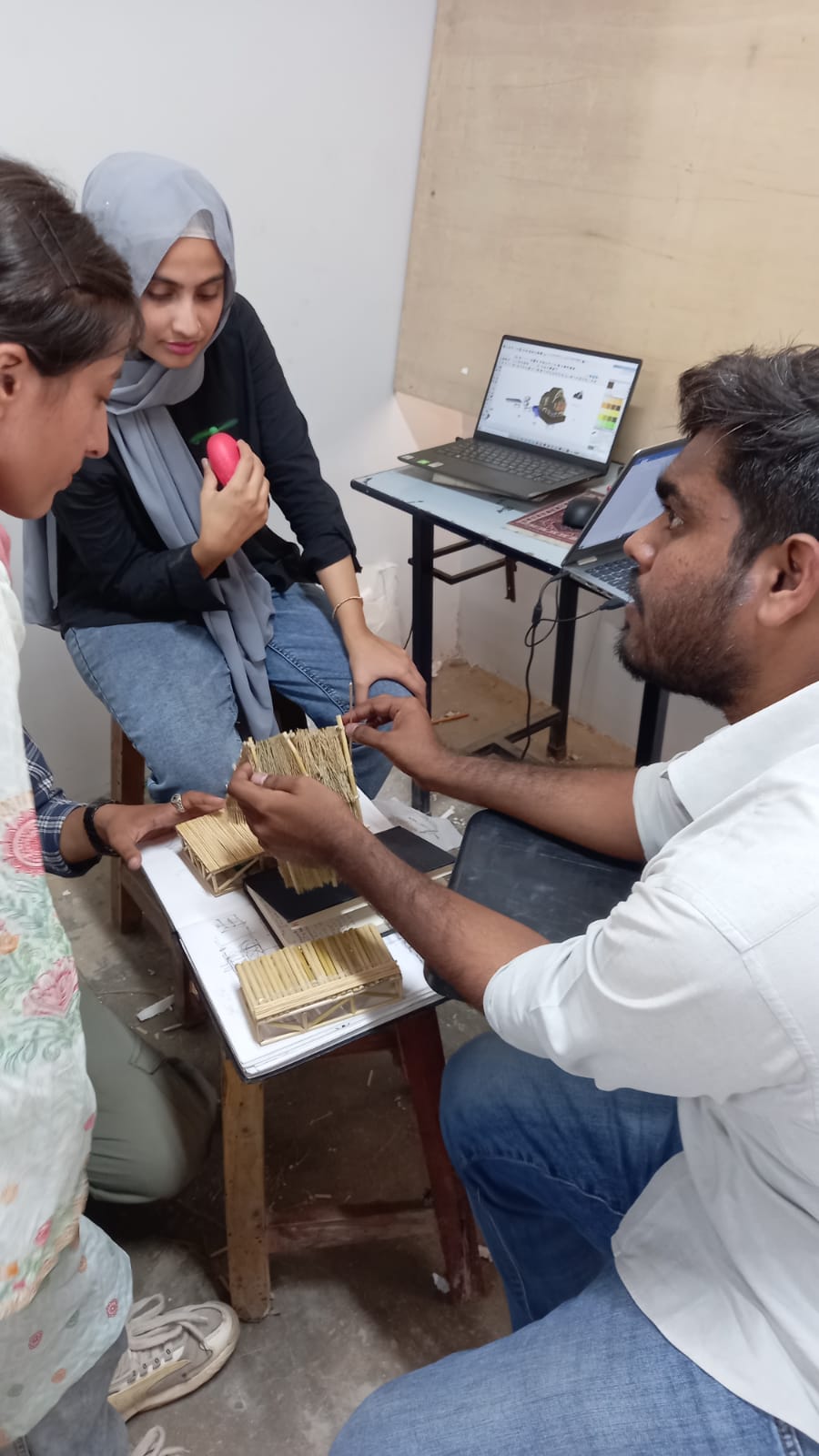
Image © Architecture Programme, University of Karachi
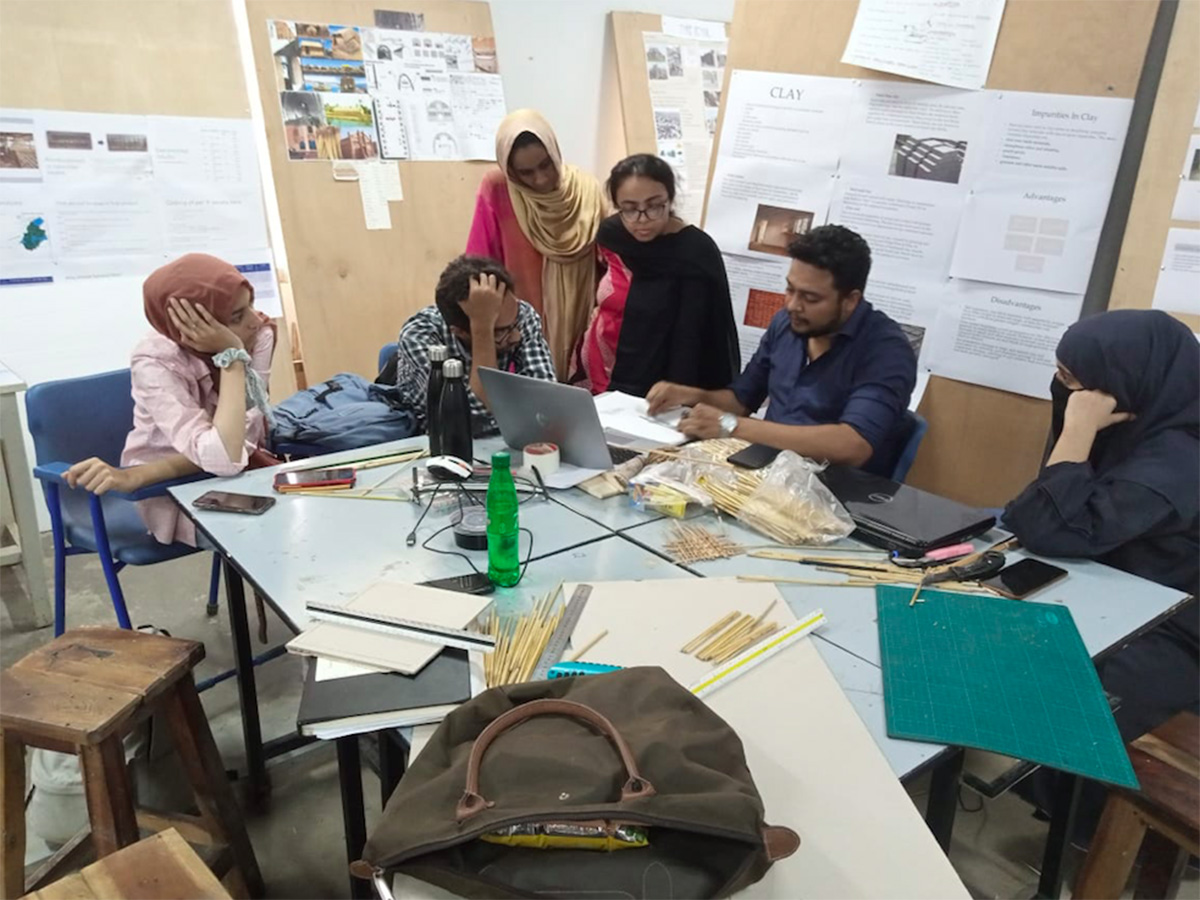
Image © Muhammad Osama Baig
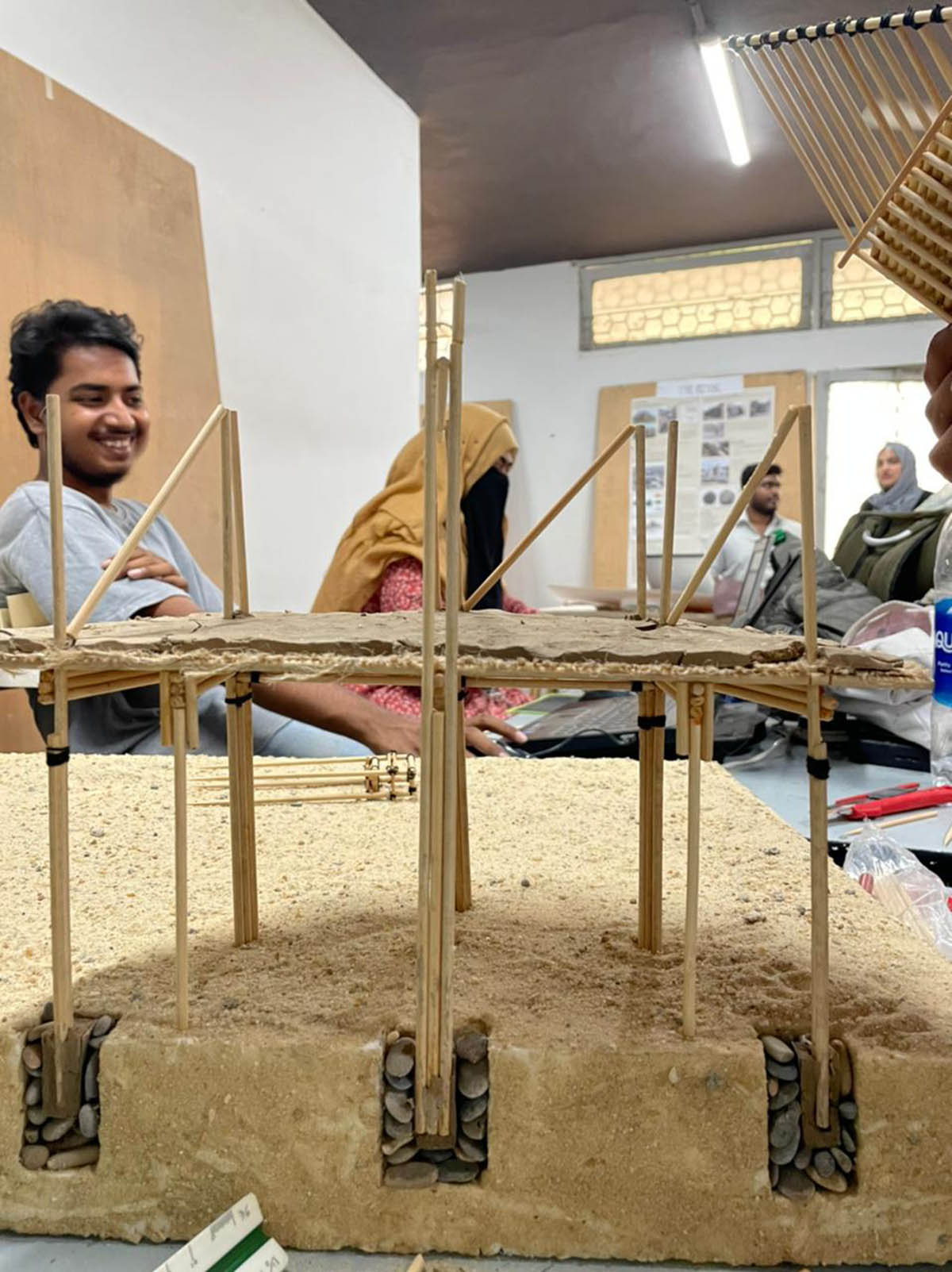
Image © Architecture Programme, University of Karachi
Day 4 and 5 were mainly utilized in finalizing the work by turning the ideas into reality via presentations and model making. While students experiment on practical grounds, the workshop was not solely meant to come up with design solution but to encourage students to understand how community service is imminent for a holistic society. It further initiated a dialogue that design does not have to be solely beautiful but it must at all cost, serve the purpose. The solutions proposed were simpler yet practical to ensure that for the inhabitants or those affected by flooding can build it themselves.
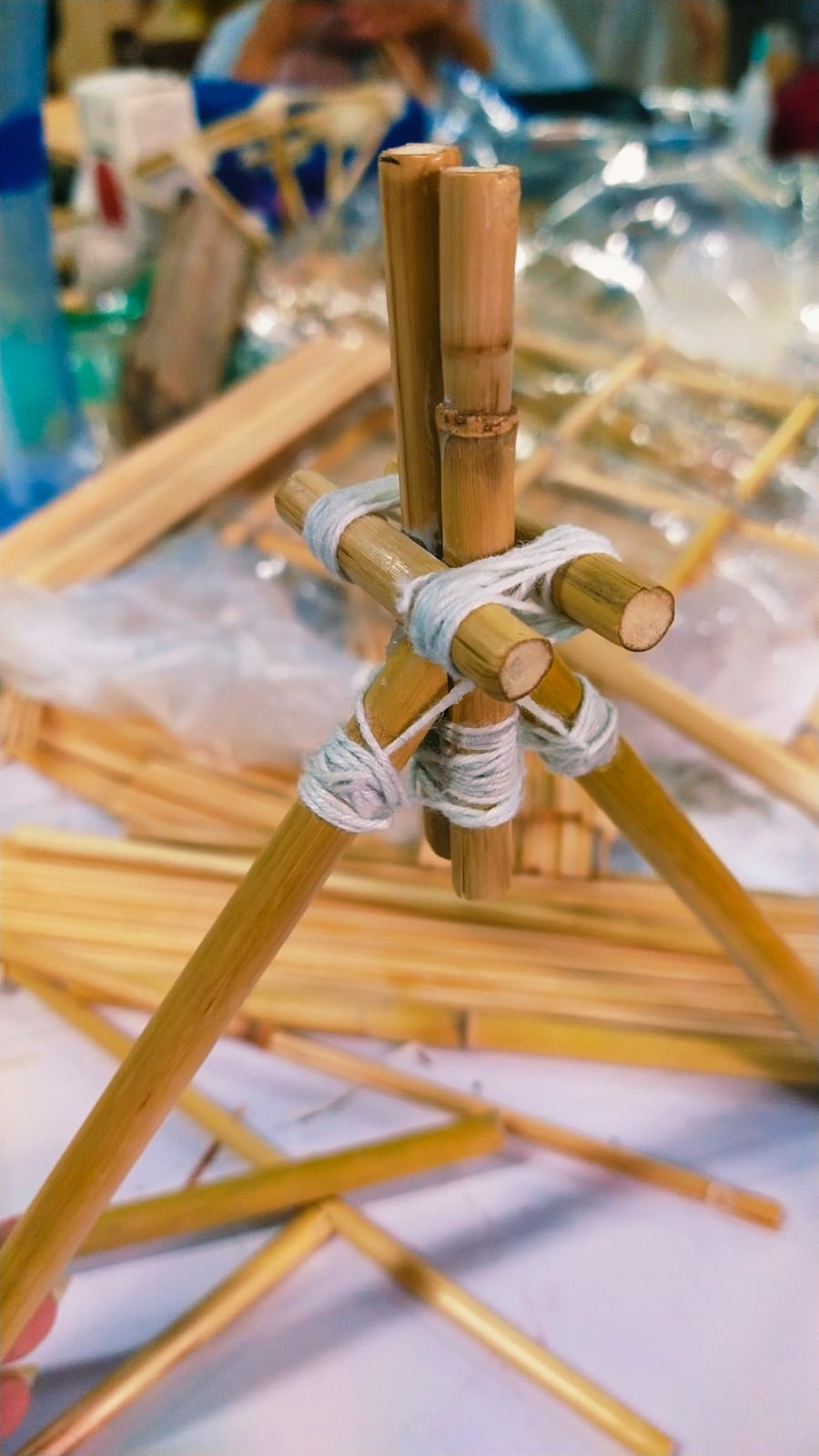
Image © Architecture Programme, University of Karachi
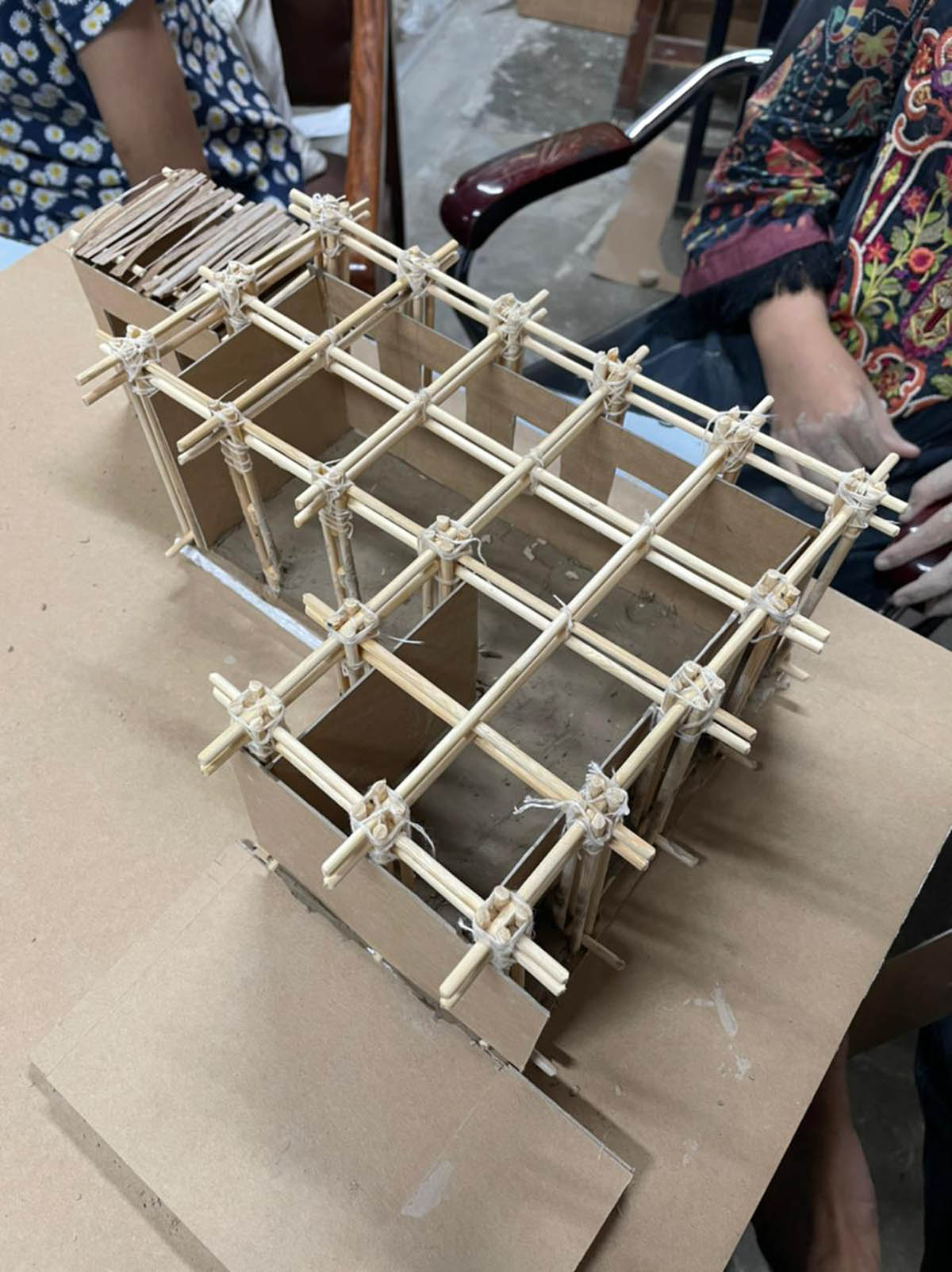
Image © Architecture Programme, University of Karachi
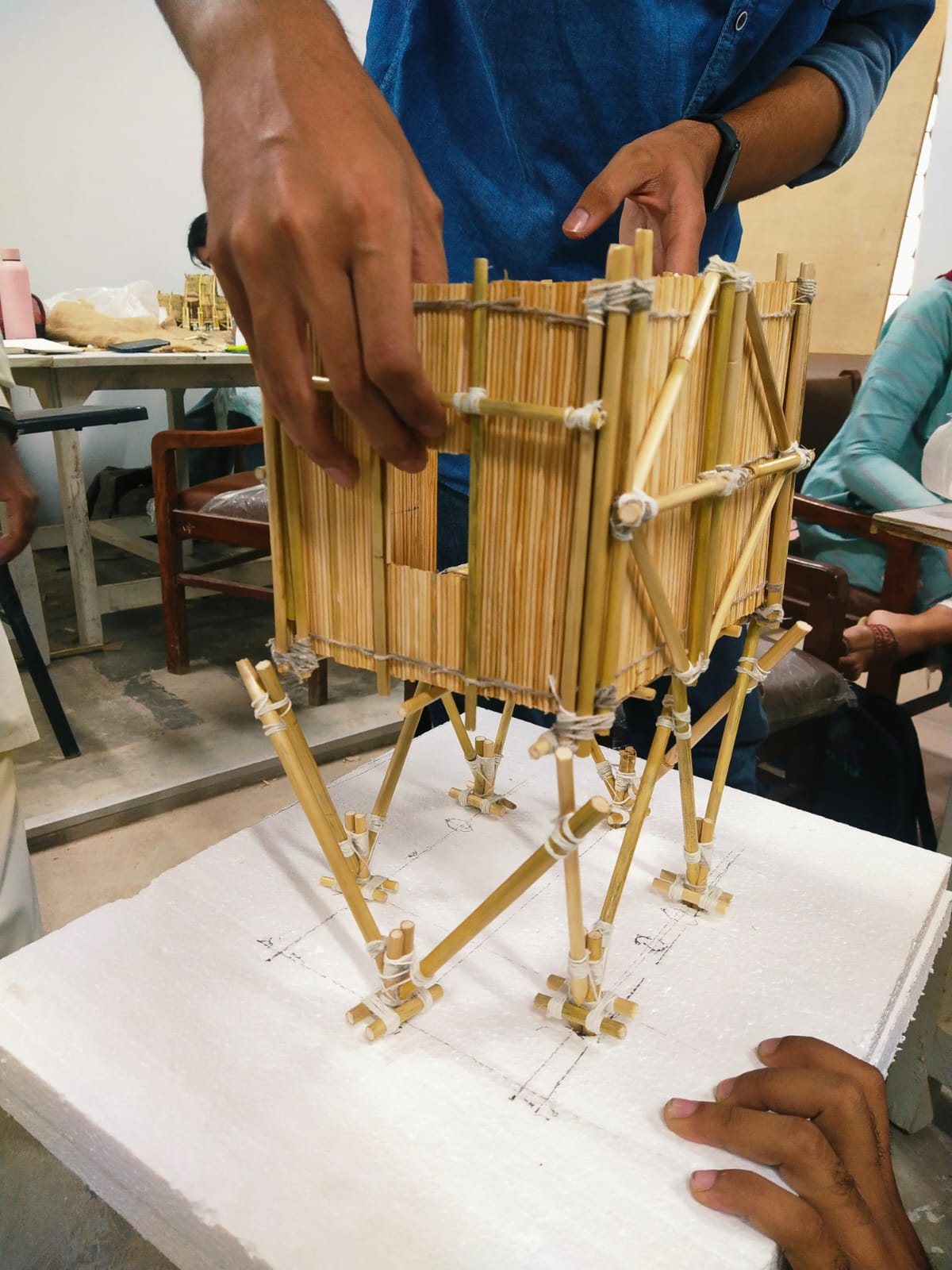
Image © Architecture Programme, University of Karachi
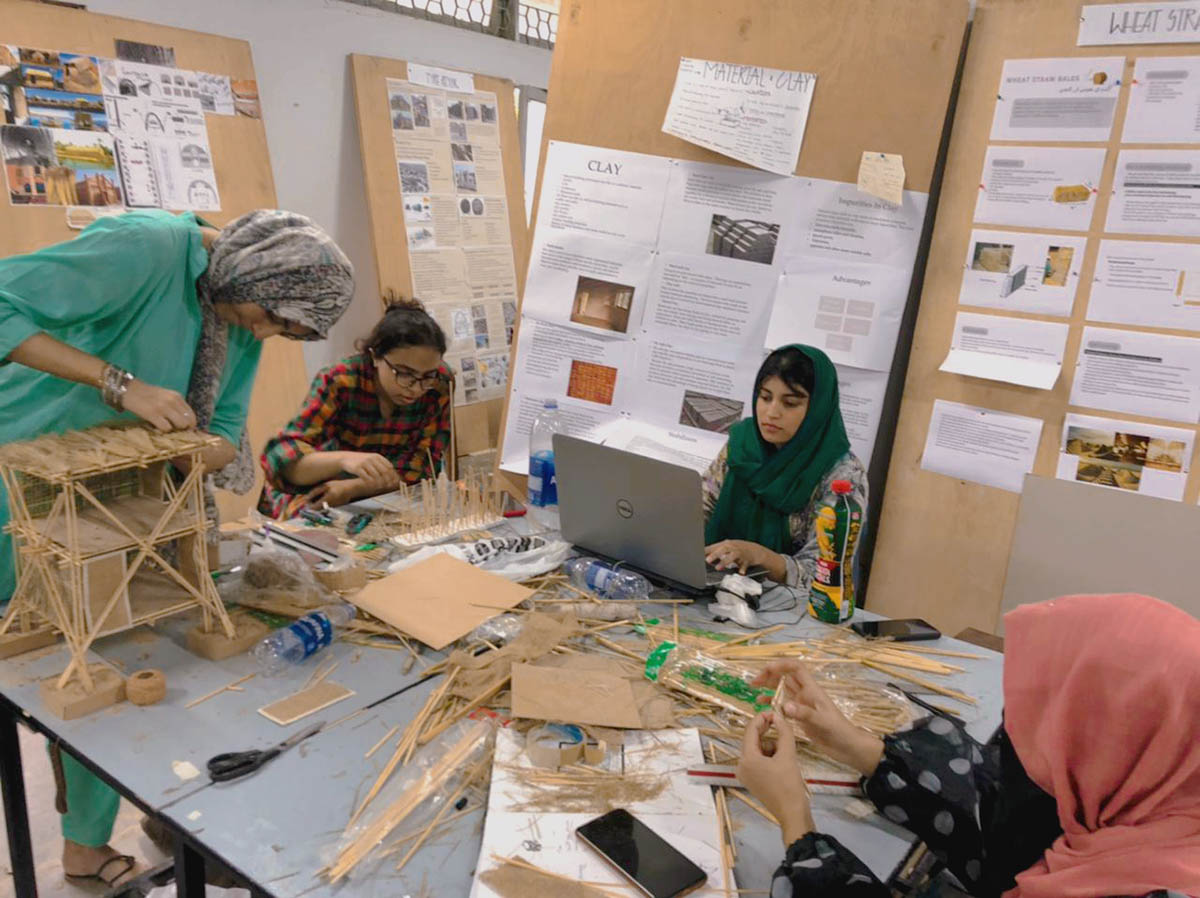
Image © Architecture Programme, University of Karachi
Post workshop, the department held a whole week long display in order to invite student bodies, NGOs, government organizations and people from diverse design field, ensuring participation on societal level. As the urgency to provide the shelter is dire, the department sought sponsorship opportunities to initially build the prototype and take it forward from there. Fortunately, the workshop managed to initiate the conversation regarding climate change, building an ethical build environment and taking small steps to collectively work on the problems. Students did manage to experiment and build on a larger scale with the help of the NGOs and governmental organization.
Currently, WM Creative Studio Re-Lab is working in various regions affected by flooding and they encourage students volunteering, thus making sure that students work with the material on the practical grounds as well.
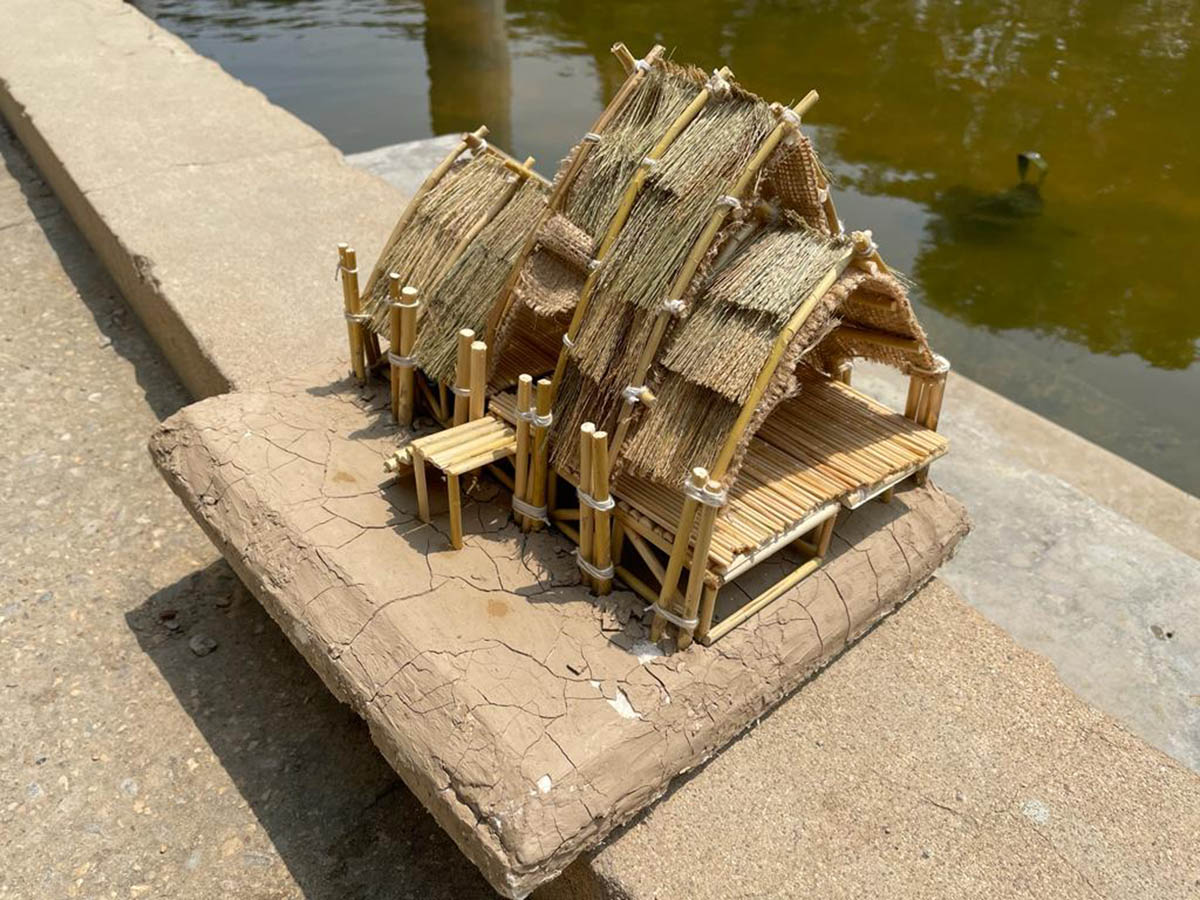
Image © Architecture Programme, University of Karachi
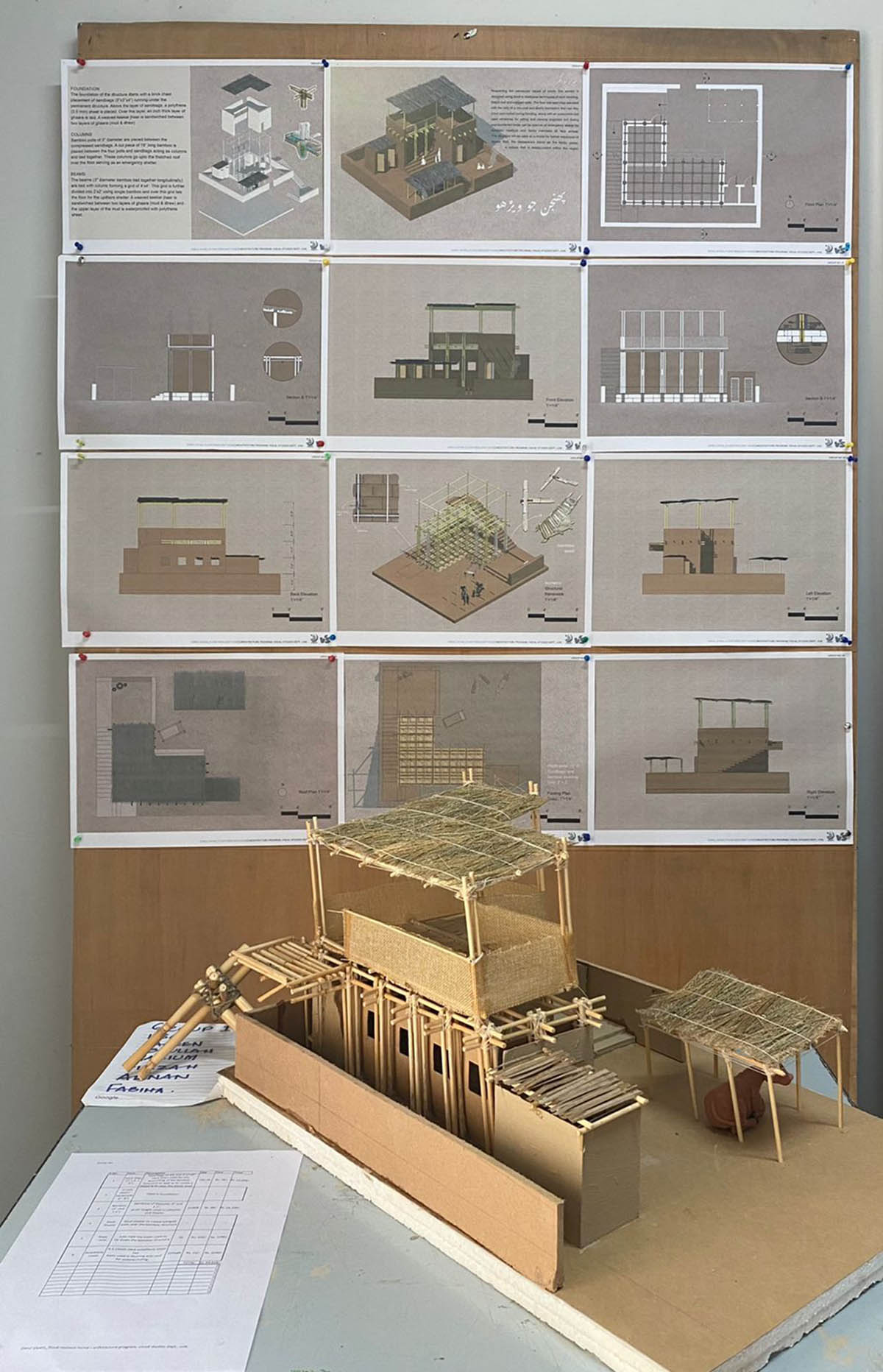
Image © Architecture Programme, University of Karachi
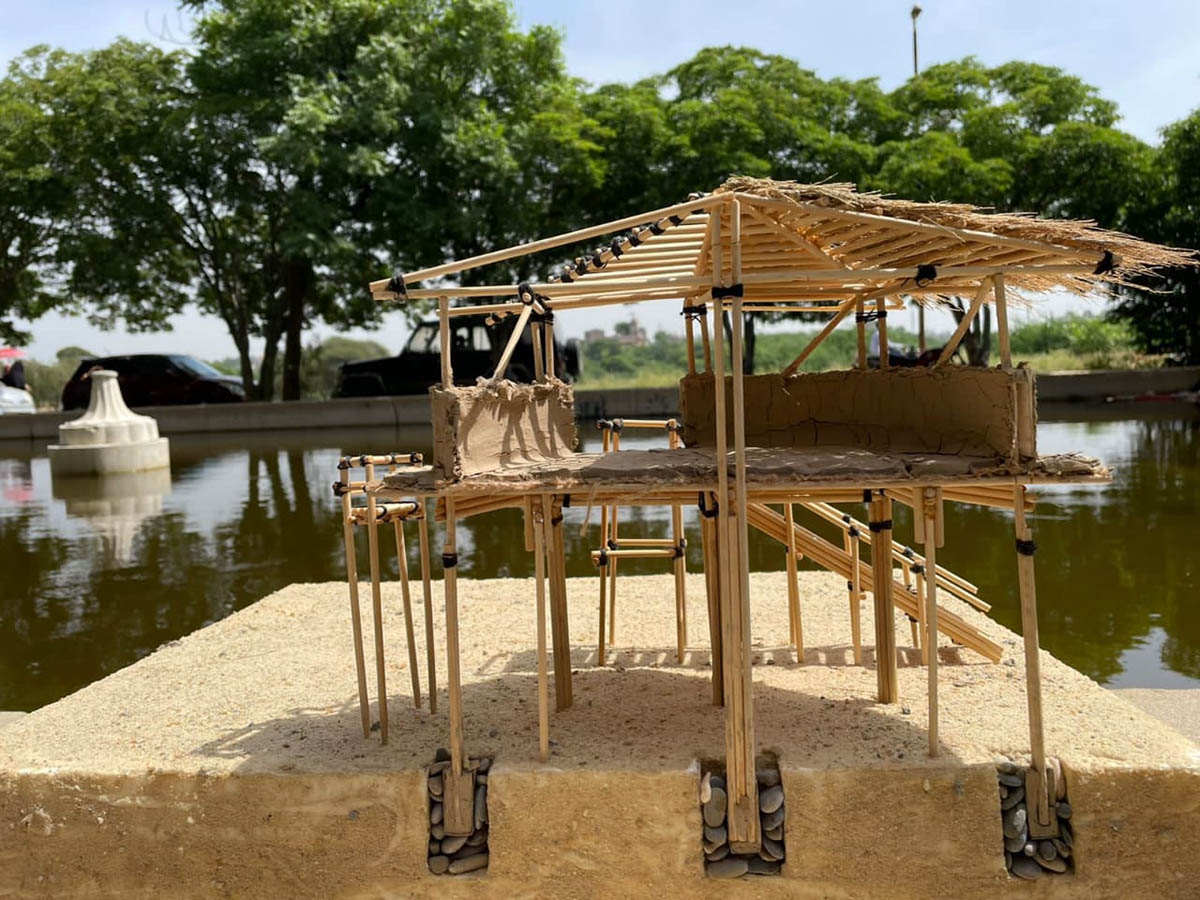
Image © Architecture Programme, University of Karachi
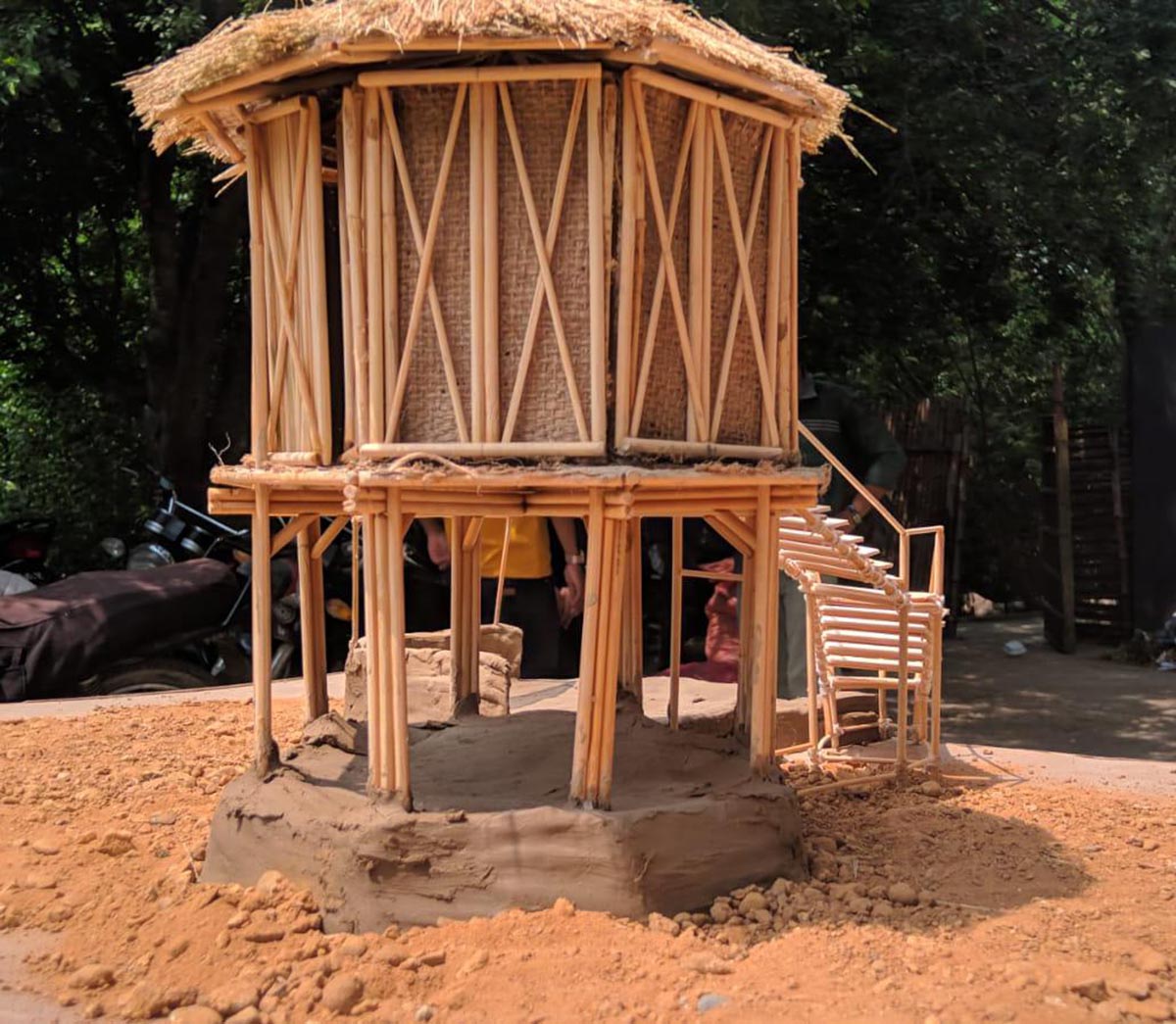
Image © Architecture Programme, University of Karachi
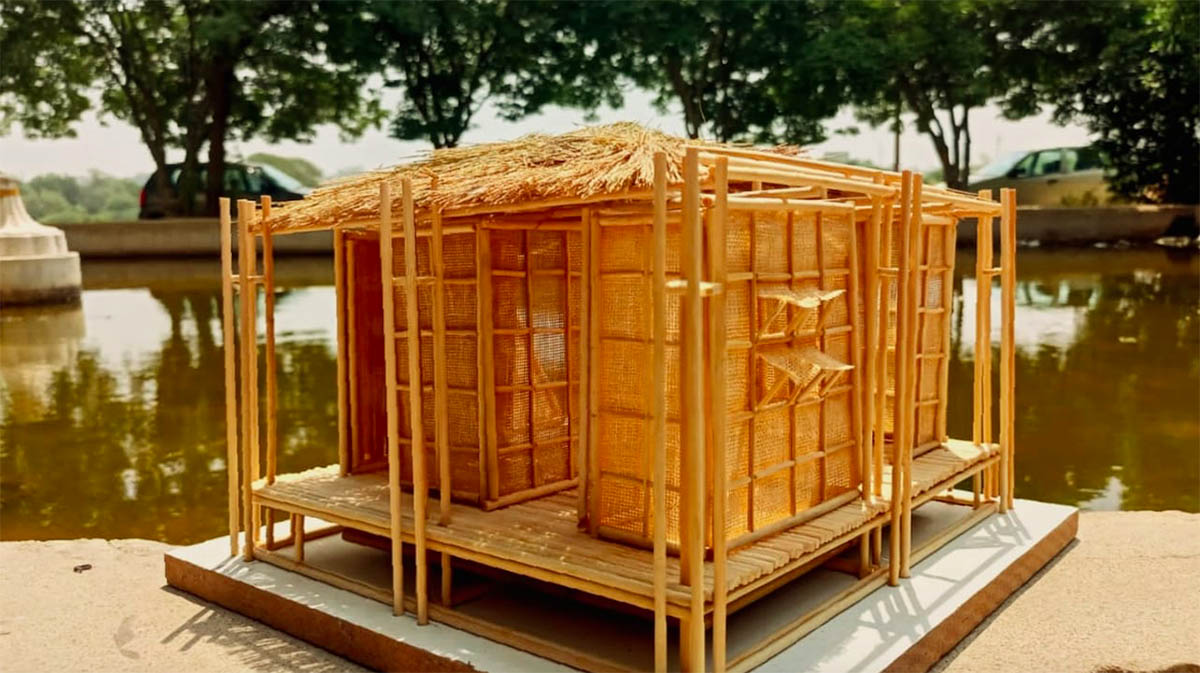
Image © Architecture Programme, University of Karachi
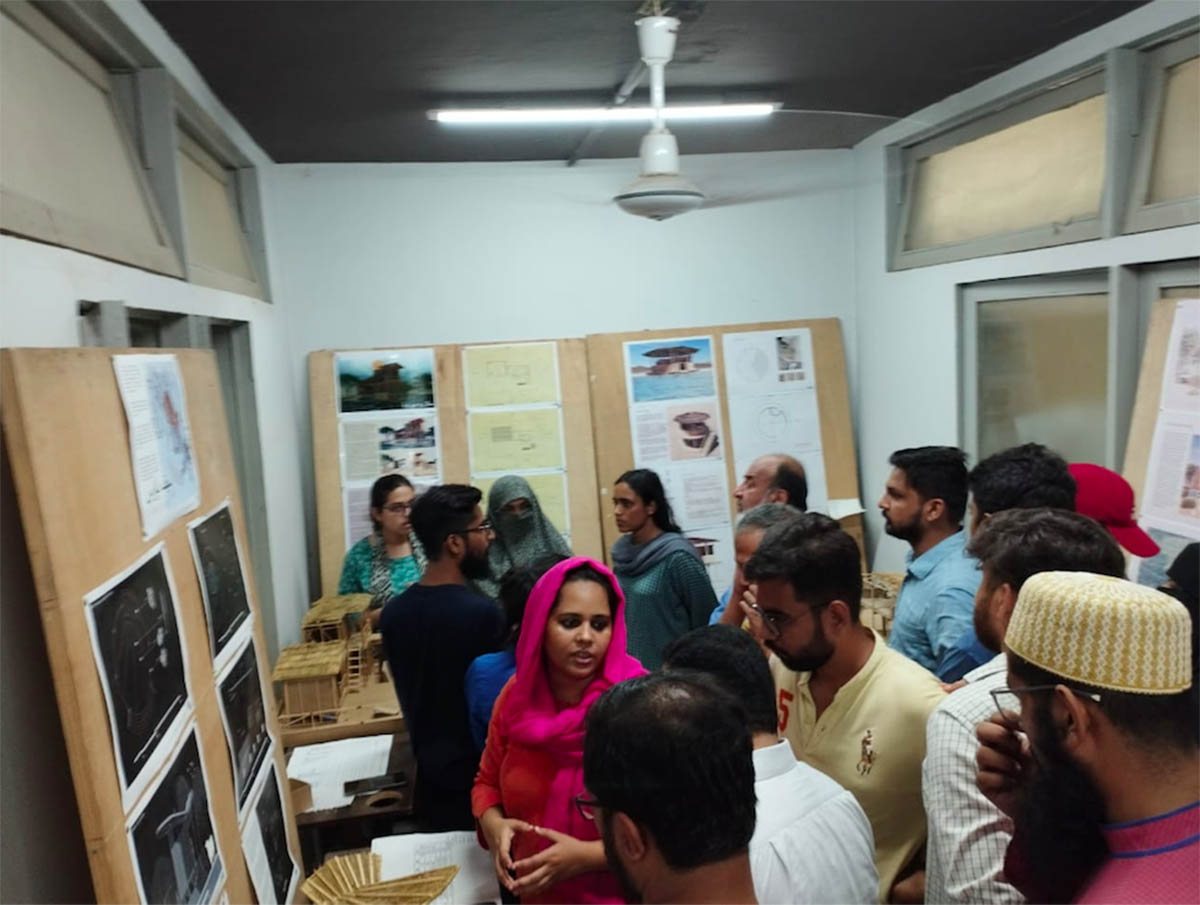
Faculty member briefing the visitors with respect to the design. Image © Architecture Programme, University of Karachi
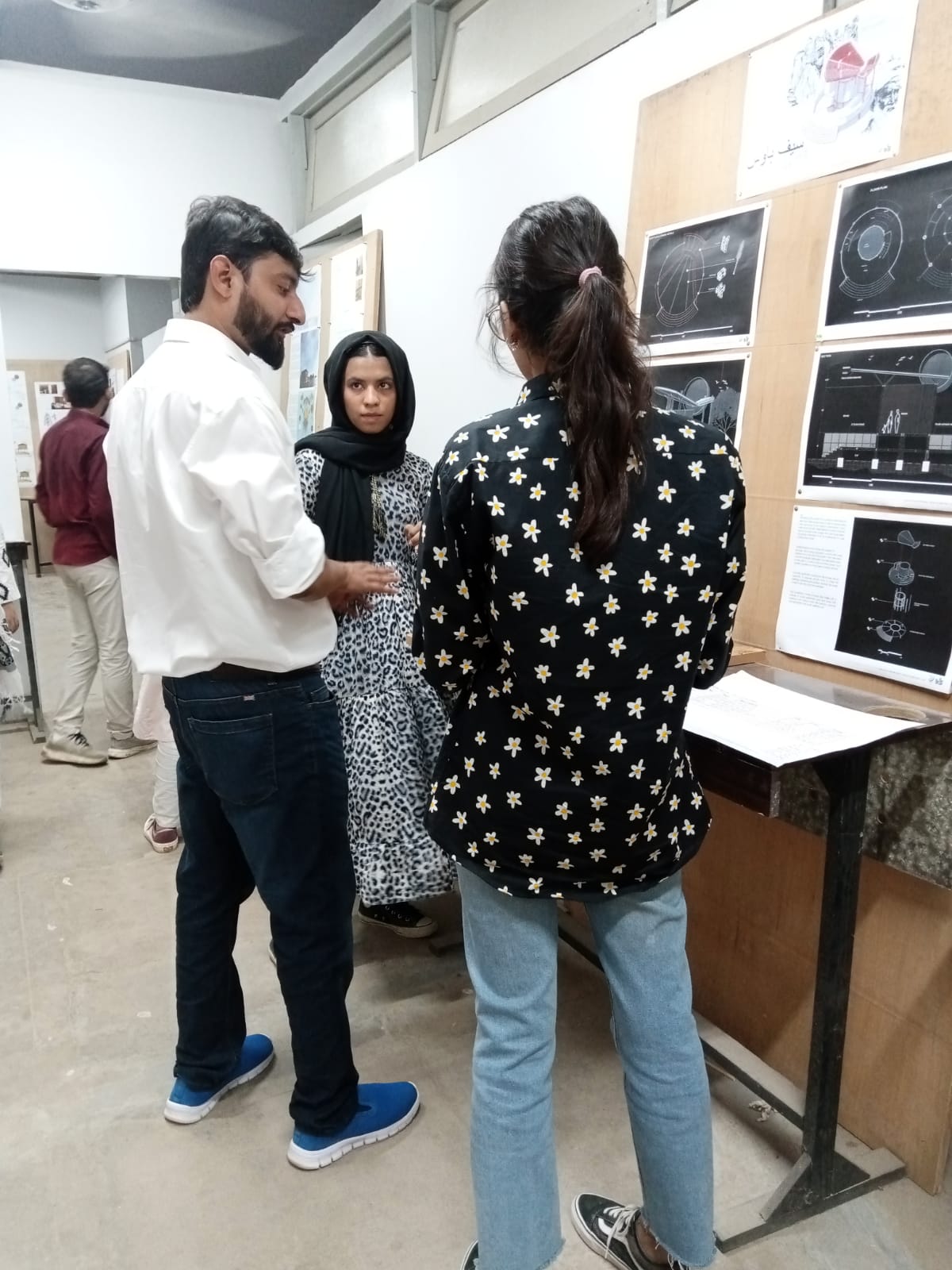
Students explaining their design. Image © Architecture Programme, University of Karachi
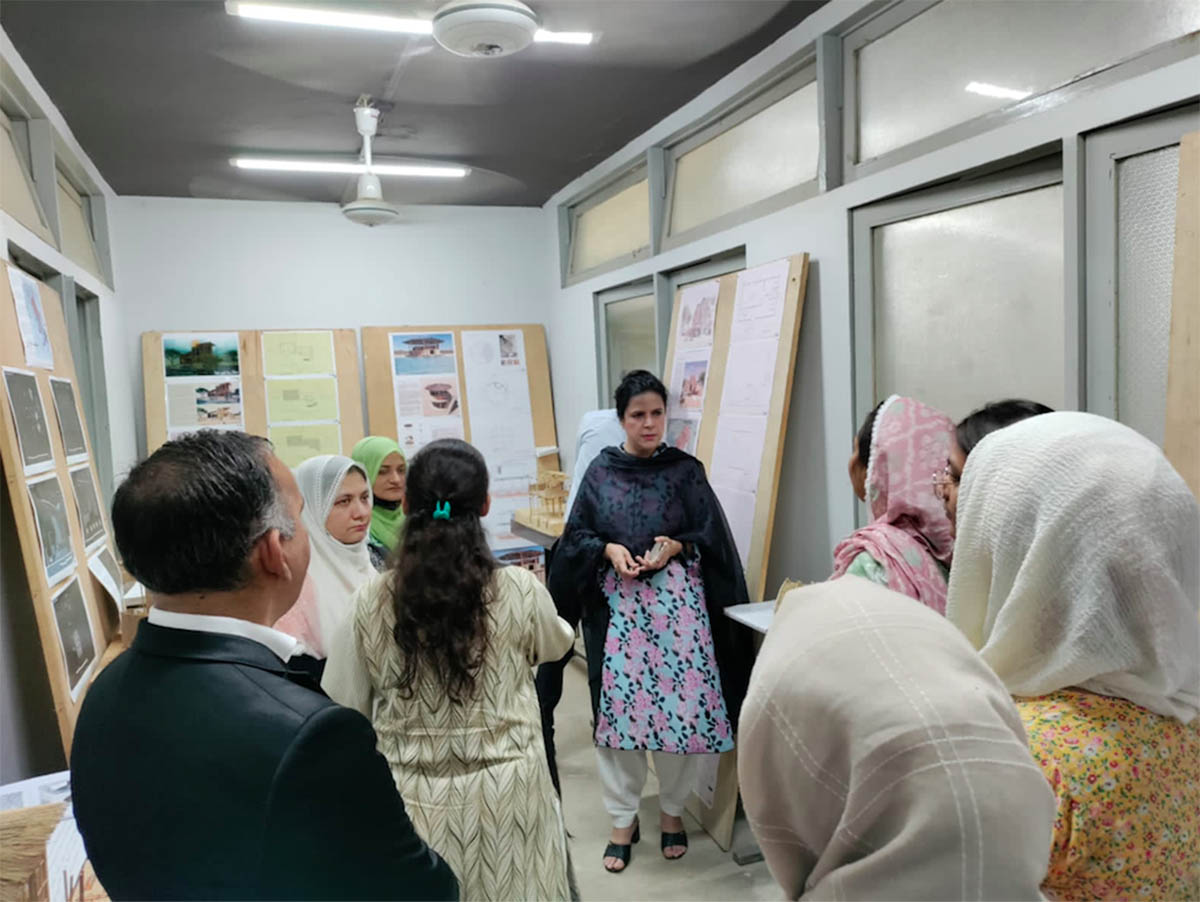
Discussions with respect to the display. Image © Architecture Programme, University of Karachi
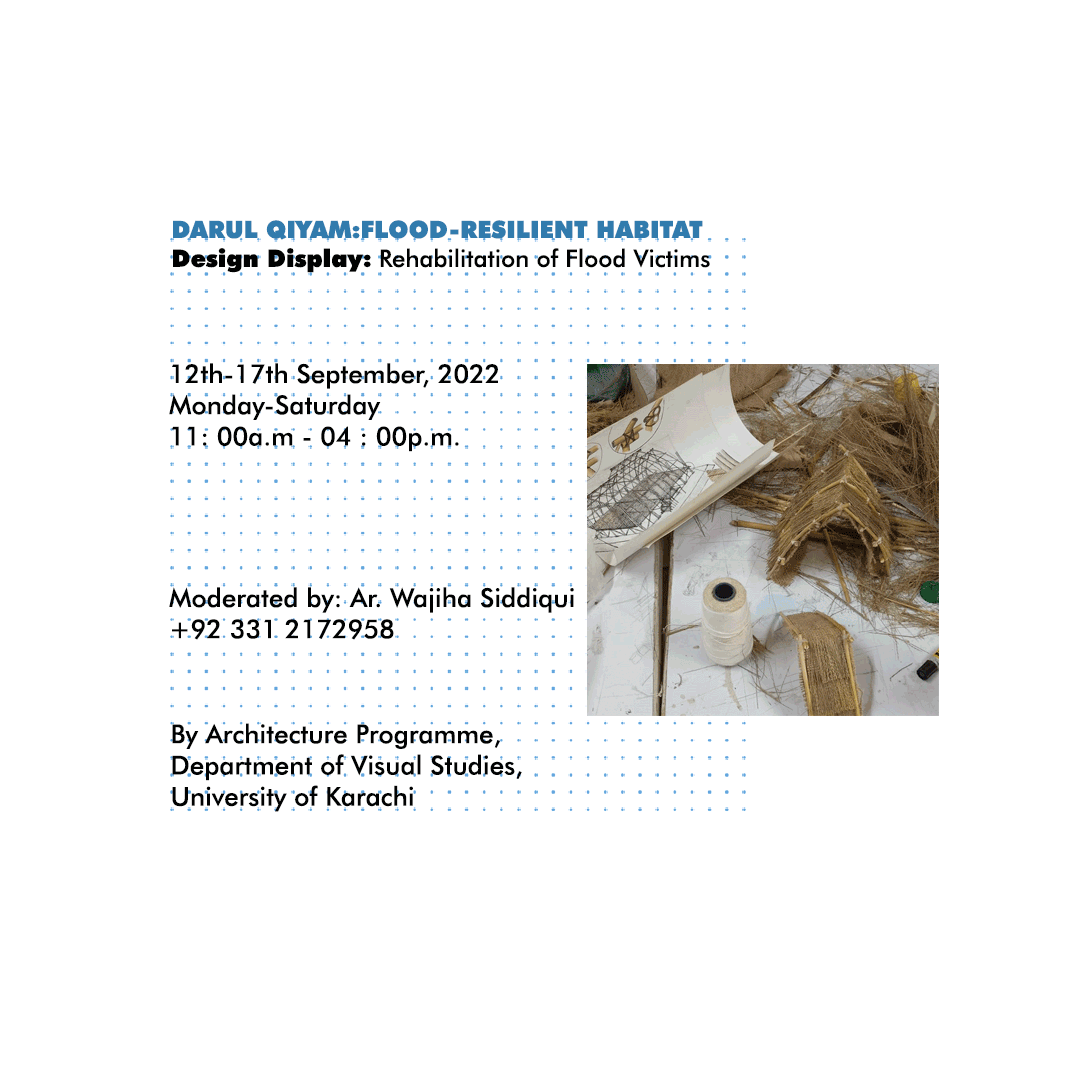
Image © Architecture Programme, University of Karachi
Workshop facts
Trademark: Mateen Ahmed Siddiqui
Authors/Contributors: Wajiha Siddiqui and Sadia Siddiqui.
Participating Faculty Members:
Abbas Reza Jaffery (Architecture Programme Coordinator & Faculty Member). Ar. Fatima Ausat, Ar. Samar Shamim, Ar. M. Mehdi, Ar. Wajiha Siddiqui, Ar. Syeda Masooma, Ar. Ammar Anwar, Ar. Sabeeh Hasan, Ar. Shah Salman, Ar. Umair Siddiqui, Ar. Syed Muahid Hussain, Ar. Rafiq Alvi, Ar. Sadia Siddiqui
Location: Architecture Programme, Department of Visual Studies, University of Karachi
Workshop Moderator: Ar. Wajiha Siddiqui
Workshop Conducted by: Architecture Programme, Department of Visual Studies, University of Karachi
Workshop: 12-17th September, 2022
1. Pakistan: More than 1500 people and robbing more than 6.4 million people of their livelihood and homes. United Nations. (2022, September 2). | UN news. Retrieved March 2, 2023 from (https://news.un.org/en/story/2022/09/1126001) / copy-paste into your browser.
Top image: The people stranded after the devastating flood forced them into homelessness. Image © Nafeel Qureshi, University of Karachi.
